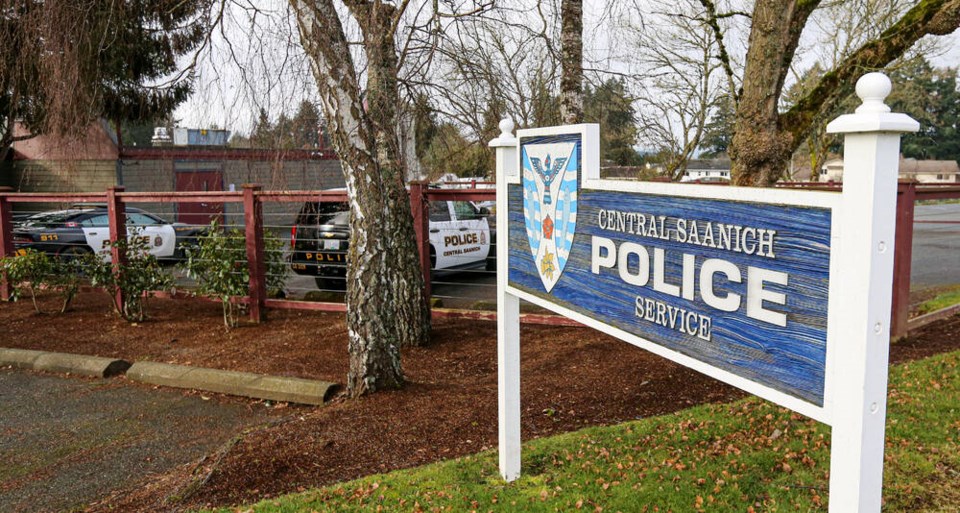A new all-party MLAs report on policing in B.C. recommends replacing the RCMP with a provincial force and creating regional departments.
Victoria Mayor Lisa Helps said she hopes the province starts with the regional departments measure.
Creating a new provincial force would take years, she said Thursday, but amalgamating capital region departments could be achieved sooner. “You’ve got to start somewhere, and starting with fragmented policing in our region, in Metro Vancouver, in the Okanagan. Those are easier wins for the government than creating an entirely new provincial police service.”
Helps was responding to the report of an MLAs committee looking at changes to B.C.’s Police Act. The committee, made up of members of the legislature from all three parties, was established to consider reforms for independent oversight, training, funding, service delivery and other issues that would modernize law enforcement.
The report says the committee was appointed amid awareness of systemic racism, a demand for more accountability and questions about responses to mental-health and addictions issues.
The committee said its 11 recommendations are interconnected and build on each other, with the first being to bring in a new policing act with input from Indigenous people and local governments.
B.C. has 13 independent police forces, including four in the capital region: Saanich, Oak Bay, Central Saanich and VicPD, which covers both Victoria and Esquimalt. The RCMP polices the rest of Vancouver Island, parts of the Lower Mainland and almost all of rural B.C.
The issue of policing on the south Island has long been contentious, with Victoria pushing for amalgamation of departments, but other municipalities balking.
Esquimalt, which this week began surveying its citizens about their thoughts on policing in the community, has chafed at being Victoria’s lone police partner.
Helps recalled that when the provincial government decided to force the merger of the Victoria and Esquimalt departments in 2002, the move was supposed to be the first step toward the creation of a regional force. “That first step was taken 20 years ago. Maybe now, 20 years later, we can take the second step.”
Helps and Esquimalt Mayor Barb Desjardins are co-chairs of the VicPD board, which made a submission to the legislature committee in which it called for police amalgamation.
“It would be really good to have regionalization here as a key priority,” Helps said. “The government now has a recommendation that the most effective way to deliver police services in our region is through an amalgamated police service.”
Helps also said amalgamating capital region forces would give the province a chance to “experiment” with a new way to govern regional departments. Following the Victoria-Esquimalt model, with a board led by the mayors, would result in each of the area’s 13 mayors serving as co-chairs. “It doesn’t make any sense.”
“Our report outlines a vision for policing and community safety that is rooted in decolonization, anti-racism, community and accountability,” committee chairman Doug Routley, a member of the NDP government, said in the legislature.
Some of the report’s 11 recommendations can be implemented quickly but others will take “many years and successive parliaments,” said Routley. “Our recommendations aim to provide police officers with the tools and support they need to ensure British Columbians have equitable access to high-quality police and community safety services in every community across the province.”
He said an integral component of this will be addressing systemic racism in policing and the lack of trust between people, communities and the police.
Liberal Dan Davies, the committee’s deputy chairman, told the legislature that over the past year and a half, it has heard hundreds of witness statements from police agencies, social service providers, municipalities and members of the public, including those from “diverse and marginalized populations.”
“There are incredible challenges that we all know too well around mental health and addictions, challenges in the justice system,” he said.
To address policing inconsistencies and improve accountability, the report recommends transitioning to a new provincial police service, rather than continuing the contract with the RCMP.
A statement from RCMP Deputy Commissioner Dwayne McDonald, the commanding officer in B.C., said they’ll take time to review the report and until that is complete, they won’t speculate on next steps.
“The RCMP has a complex role in B.C. as we deliver services at the municipal, provincial and federal level,” his said.
B.C.’s contract with the RCMP expires in 2032.
“I am very proud of the RCMP team that works incredibly hard every day to keep B.C. communities safe and secure and we remain committed to doing so,” McDonald said.
Public Safety Minister Mike Farnworth said the committee’s recommendations echo the government’s belief that everyone deserves equal treatment by police.
“This has not always been the case for many Indigenous, Black and other people of colour. Public trust requires that the delivery of police services is fair, equitable and responsive to all British Columbians,” he said in a statement.
Farnworth said they’ll be discussing the recommendations this summer with Indigenous partners, community organizations, health and mental-health groups, police leadership, agencies and police oversight bodies.



